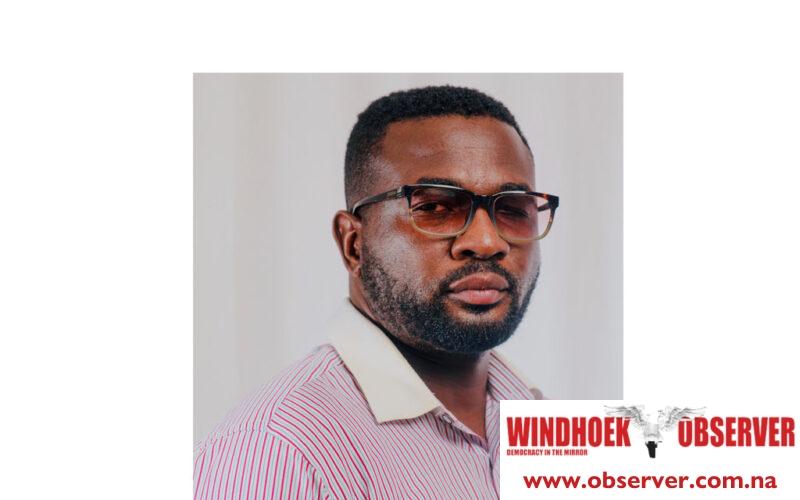Erasmus Shalihaxwe
Imms Nashinge, the spokesperson of the Independent Patriots for Change (IPC) said the Electoral Commission of Namibia (ECN) has not only breached the Electoral Act but also violated Article 10 and Article 18 of the Namibian Constitution.
Nashinge said the ECN has discriminated against other political parties by meeting Swapo’s secretary general, Sophia Shaningwa, President Nangolo Mbumba, and some other senior government officials at State House on Tuesday.
The Presidency’s spokesperson, Alfredo Hengari defended Shaningwa’s presence at the meeting, saying she was there in her capacity as a Cabinet member.
Nashinge said Shaningwa is a member of parliament only because of Rule 55 of the Swapo rules for electing party representatives.
Nashinge said that there is no constitutional provision for the Swapo secretary-general to be a Cabinet member, which seems to be the justification for her inclusion in the presidential delegation.
He said if anyone was entitled to have been included or summoned to State House, it should have been the Minister of Urban and Rural Development.
“There is no provision in the Namibian Constitution for the president to appoint the secretary general of the Swapo party as a member of cabinet; Article 32 (3) (h) (i) (hh) makes provision for “any other person or persons. Such an appointment requires a provision by the “Namibian Constitution or any other law to be appointed by the president.” Thus, the appointment of Swapo SG to Cabinet is unconstitutional and should be done away with,” argued Nashinge.
He added that in terms of Section 135 (2) (b) (f) of the Electoral Act, Act 5 of 2014, the principle object of political parties is to participate in and promote free and fair democratic elections. As a result, when the ECN was concerned about the slow pace of registration, it was obligated to consult the relevant statutory stakeholders.
“The President’s role in terms of Article 30 of the Namibian Constitution is “to protect the rights of all persons,” including those of registered political parties. Summoning the ECN for a meeting, regardless of the presence of a Swapo official, is unconstitutional, unlawful, illegitimate, and a breach by the President of his constitutional oath of office. This further casts serious doubt on the ECN’s adherence to its peremptory obligations to impartiality and its commitment to democratic principles,” said Nashinge.
He further stated that his party will evoke Schedule 4 of the Namibian Constitution to ensure its presence at all material stages of the electoral process involving ECN and/or its officials. Additionally, IPC will also object and seek judicial review should ECN engage any entity in Namibia.
Affirmative Repositioning leader Job Amupanda also condemned the meeting and announced that he has written to ECN Chairperson Elsie Nghikembwa to get more clarity on the matter.
ECN Chief Electoral and Referenda Officer, Peter Shaama said the meeting solely discussed the low turnout of eligible voters for the general registration of voters, which ends on 1 August.
“It is worth pointing out that the office of the president has already addressed the matter of the attendance of the secretary general in the media. Suffice it to state that ECN does not dictate who the president invites to his meetings,” said Shaama.
Political analyst Mentor Valentinia said the electoral management body of a democracy ought to be independent of any political parties, higher government officials, and or politicians to ensure integrity, transparency, professionalism, and accountability.
“This is clearly stipulated in our constitution. The presence of the Swapo secretary general has bridged the independence of the ECN from political party influence. This act has indeed proven to the nation that ECN is not an independent electoral body and with the election ahead of us, it leaves us in dismay,” said Valentinia.
Another political commentator, Heiki Namboga, said Shaningwa’s participation raises serious issues about the legitimacy of Namibia’s democratic processes.
According to him, the electoral commission’s independence is of paramount importance for free and fair elections, and any perceived interference from the ruling party weakens its impartiality to the core.
“On the other hand, ignoring the boundaries between the executive branch and the ECN at the State House gathering shows an overlap of roles, which compromises a democratic government. Transparency is also required to retain public trust, and the lack of precise information regarding this meeting’s agenda continuously raises suspicions. Otherwise, the ECN must preserve its independence, include representatives from all key parties in such discussions, and explain their motives properly,” said Namboga.




